Your Complete Guide to Heart Healthy Foods for Women Over 60

Embrace a Heart-First Kitchen After 60

There is something magical about creating a kitchen that nurtures both body and soul, isn’t there? As we enjoy our golden years, the foods we choose become more than just meals; they are a commitment to vibrant living and longevity.
Imagine your countertops adorned with bowls of colorful fruit and glass jars of wholesome grains. These ingredients bring as much beauty and life to your kitchen as any designer accessory, turning your space into a sanctuary of wellness.
This commitment to self-care is a beautiful expression of self-love. It turns the daily act of eating into a mindful practice that celebrates both aesthetics and health.
In this guide, you’ll discover how to artfully incorporate heart healthy foods for women over 60 into your daily life. We’ll explore delicious ingredients and simple habits to create a kitchen that supports your cardiovascular health in every thoughtful detail.
What Makes Berries and Greens So Good for Your Heart?
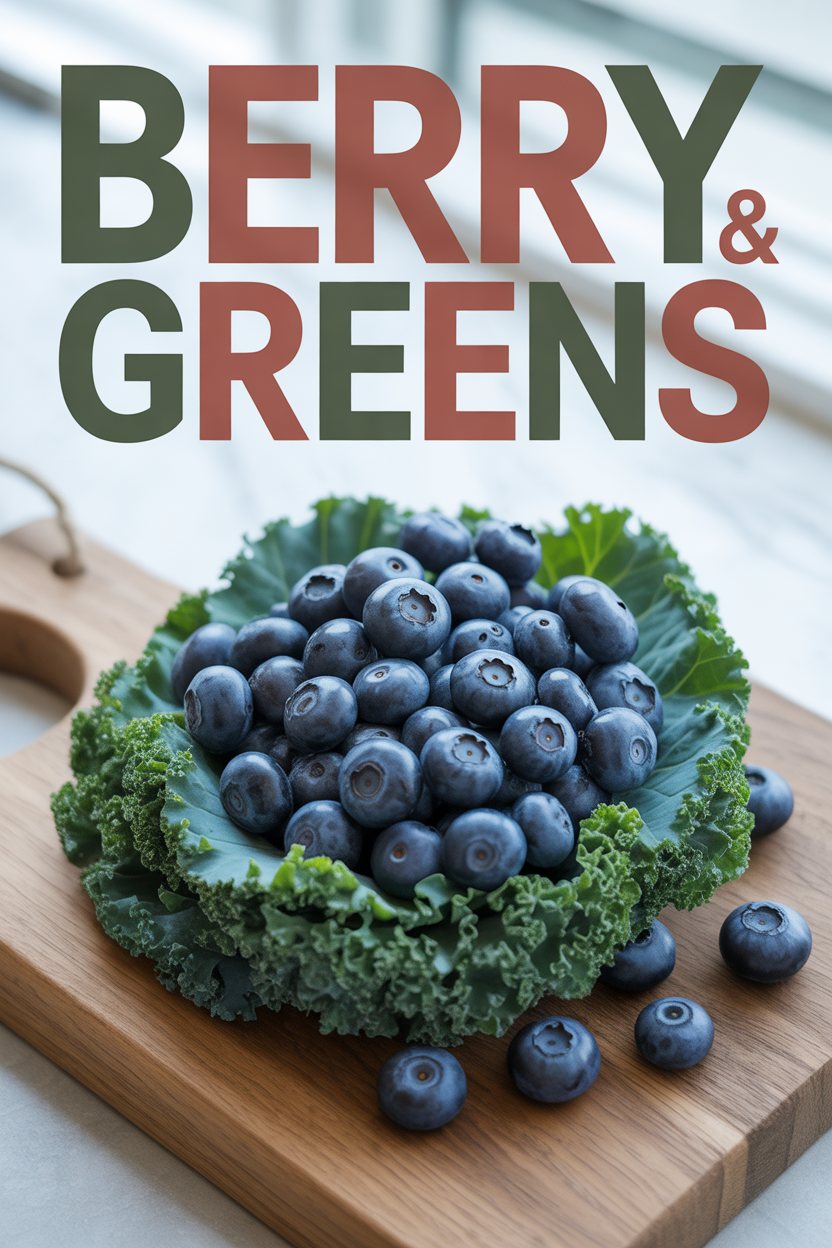
As we age, our hearts require special care, and certain nutrient-rich foods offer remarkable protection. These foods deliver concentrated benefits that support longevity and vascular health with every bite.
Colorful berries, such as blueberries and strawberries, are packed with powerful antioxidants called anthocyanins. These compounds help repair cellular damage in heart tissue and improve blood vessel function.
Dark leafy greens like spinach and kale are nutritional powerhouses for the heart. They provide essential minerals like magnesium and potassium, which support a proper, steady heart rhythm.
Adding these foods to your diet is a simple yet powerful act of self-care. They provide the foundational nutrients your heart needs to stay strong and resilient.
Start by adding a handful of fresh berries to your morning yogurt or incorporating a side of steamed spinach with your dinner. You will be taking a tangible step toward improved energy and vitality.
How Can Omega-3s Strengthen Your Heart?

Chronic inflammation can silently damage heart tissue over time, but omega-3 fatty acids offer powerful, soothing protection. These essential fats act as natural anti-inflammatories, helping to promote healthy blood flow.
Fatty fish like wild-caught salmon is a premier source of heart-healthy omega-3s. It contains both EPA and DHA, which directly benefit heart function and can maintain healthy blood pressure.
Plant-based sources also provide wonderful benefits. Walnuts, chia seeds, and ground flaxseeds are rich in ALA, a type of omega-3 that helps reduce inflammatory markers associated with heart disease.
Imagine waking up with less joint stiffness and more energy as inflammation throughout your body gradually subsides. A diet rich in omega-3s can contribute to this feeling of overall wellness.
Commit to eating fatty fish twice a week, a guideline supported by cardiology experts. You can also sprinkle a tablespoon of ground flaxseed on your morning oatmeal for an easy boost.
Why Are Plant-Based Proteins So Good for Your Heart?
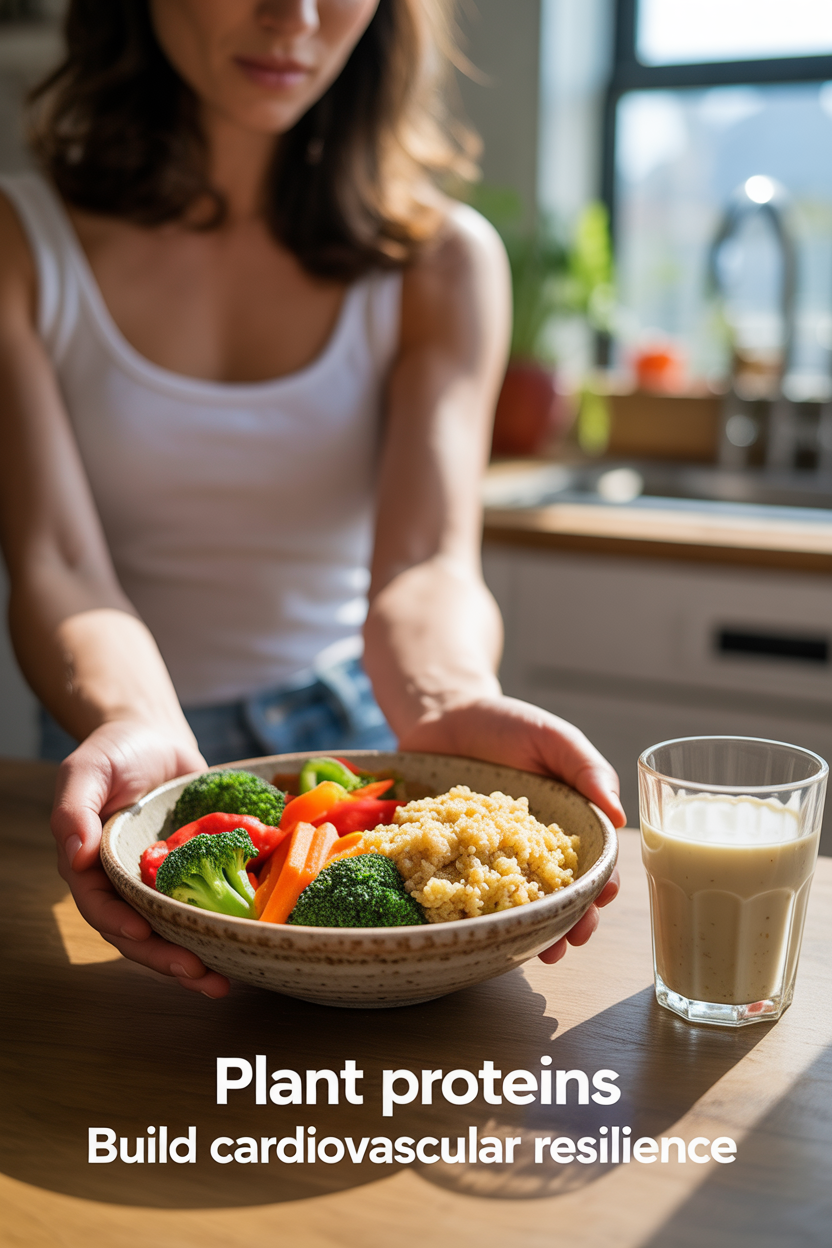
Plant proteins offer remarkable heart benefits that many animal proteins simply cannot match. They deliver essential amino acids without the unhealthy saturated fat, helping to build stronger blood vessels and improve heart function.
Legumes like lentils, chickpeas, and black beans are excellent choices. They provide both protein and fiber, which helps regulate cholesterol levels naturally.
Ancient grains such as quinoa and amaranth are complete proteins, meaning they contain all the essential amino acids your heart needs to thrive. They make a wonderfully satisfying base for any meal.
Soy-based foods like tofu and tempeh contain isoflavones. Some research suggests these compounds may help improve arterial health and blood pressure in post-menopausal women.
By regularly incorporating these plant proteins, your heart can work more efficiently and with less strain. This can help you maintain your energy throughout the day.
Start by replacing meat with plant proteins in at least three meals each week. You will quickly discover delicious recipes that you and your heart will love.
Which Foods Naturally Help With Blood Pressure?
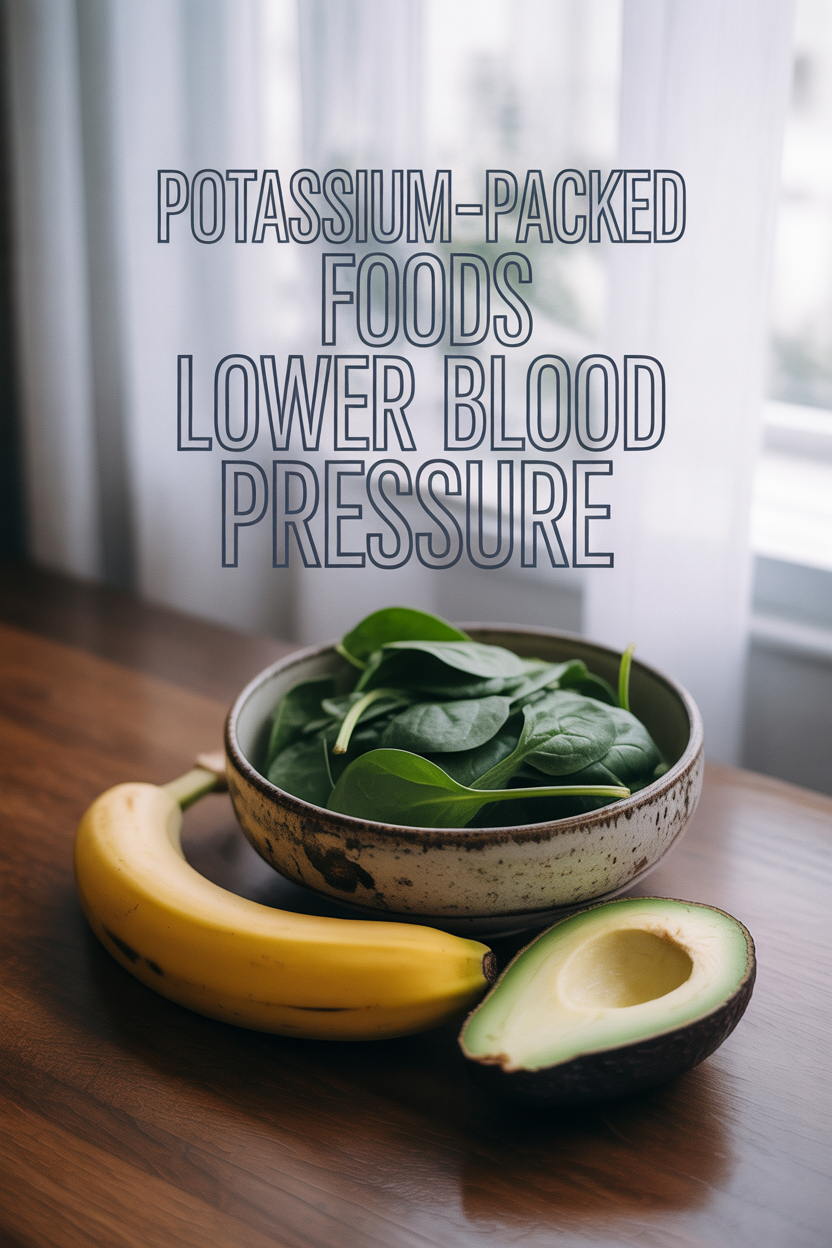
Potassium is a gentle yet powerful mineral for maintaining healthy blood pressure levels naturally. It helps counteract sodium’s effects by relaxing blood vessel walls and supporting proper fluid balance.
This principle is a cornerstone of the DASH (Dietary Approaches to Stop Hypertension) diet, a well-regarded approach to heart health.
While bananas are famous for their potassium content, sweet potatoes are also a fantastic source. They also provide beneficial fiber and antioxidants.
Leafy greens like spinach and Swiss chard offer potassium alongside magnesium, creating a powerful duo for blood pressure management. Avocados add a creamy, potassium-rich element to meals, along with heart-healthy monounsaturated fats.
As your blood pressure stabilizes with adequate potassium, you may notice more consistent energy levels. It’s a simple change that yields profound benefits.
Aim to include at least two potassium-rich foods in your daily diet, as endorsed by major health organizations. A banana at breakfast and a side of leafy greens at dinner is a perfect start.
How Can You Lower Cholesterol with Soluble Fiber?

Think of dietary fiber as your heart’s best friend, actively working to cleanse your system. Soluble fiber, in particular, forms a gel-like substance that binds to cholesterol in your digestive tract, preventing it from entering your bloodstream.
Oats and barley are rich in beta-glucan, a special type of soluble fiber shown to significantly lower LDL (“bad”) cholesterol levels. A warm bowl of oatmeal is a comforting way to start a heart-healthy day.
Beans and lentils are another excellent source. They provide both soluble and insoluble fiber, which offers a dual benefit for heart health and smooth digestion.
Fruits like apples, pears, and berries contain pectin, another form of soluble fiber. This helps maintain healthy cholesterol while delivering a wealth of protective antioxidants.
Imagine your arteries becoming cleaner and more flexible as your cholesterol levels improve. This allows blood to flow more freely, nourishing your entire body.
Begin by gradually incorporating more fiber. Try adding a half-cup of beans to your lunch salad or enjoying steel-cut oats for breakfast a few times a week to reduce your cardiovascular risk.
How Do Antioxidants Defend Your Heart Cells?

Antioxidants act as your heart’s personal defense team against damaging free radicals. These powerful compounds neutralize the oxidative stress that can harm heart cells and blood vessels over time.
This protective action is crucial for helping to maintain cardiovascular health as you age.
Dark chocolate with at least 70% cocoa is a delightful source of flavanols. These antioxidants support healthy blood pressure and can improve blood flow to the heart.
Green tea offers catechins, another type of antioxidant that may help prevent plaque buildup in arteries. It also provides a gentle lift without the jitters that can come from coffee.
When your heart is protected by a regular intake of antioxidants, it can function more efficiently. This helps you maintain the vitality and endurance for the activities you love.
Embrace these proven benefits by savoring a square of dark chocolate a few times a week or replacing one coffee with a soothing cup of green tea each day.
Embrace Healthy Fats: Why Your Heart Loves Avocados and Olive Oil
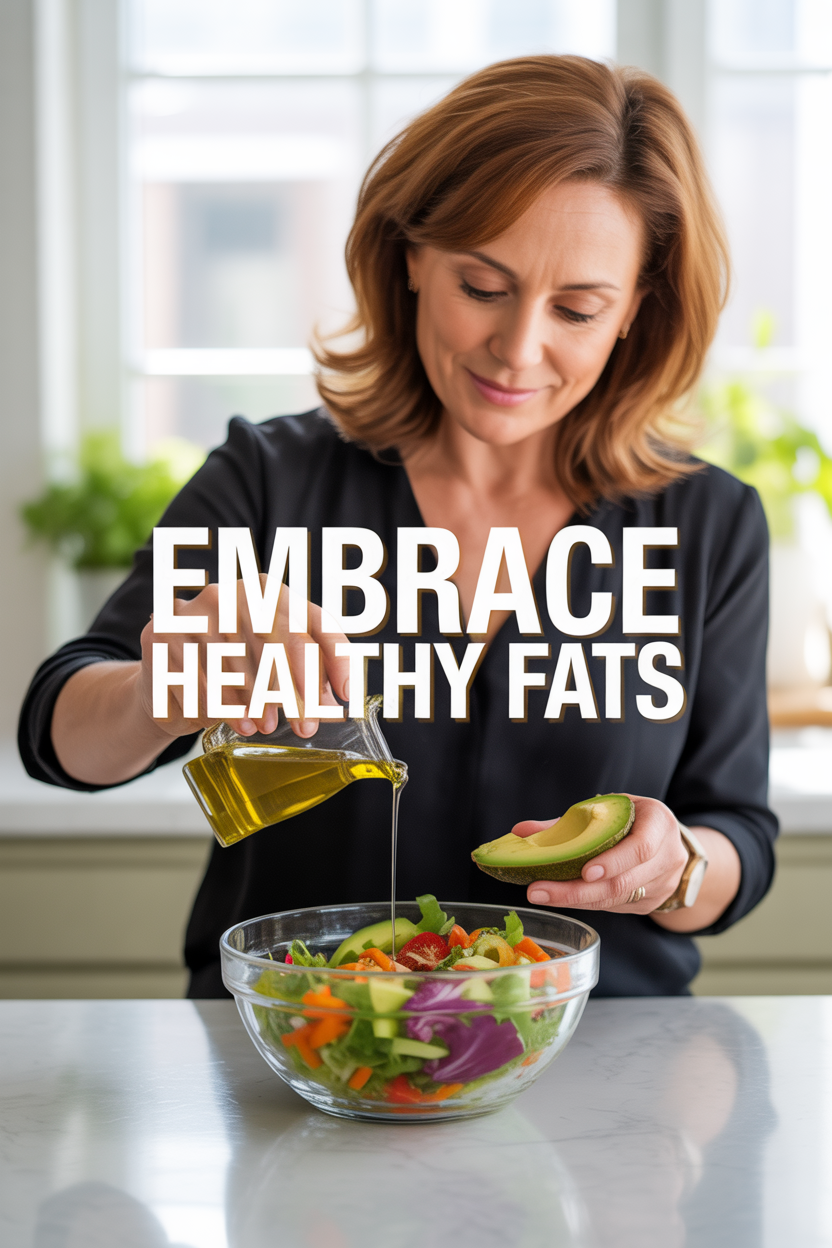
It’s time to reframe our thinking about fats; certain types are not only good for you but essential for heart health. Monounsaturated fats, in particular, play a vital role in protecting your cardiovascular system.
Extra virgin olive oil is the cornerstone of the heart-healthy Mediterranean diet. Rich in antioxidants and anti-inflammatory properties, it helps protect blood vessels and lower bad cholesterol.
Avocados are another wonderful source of monounsaturated fat. They are also packed with fiber and potassium, making them a triple-threat for supporting heart function and healthy blood pressure.
Incorporating these fats helps your body absorb essential vitamins and keeps you feeling full and satisfied after meals. They are a key component of a balanced, nourishing diet.
Enjoy these healthy fats by drizzling olive oil over salads and roasted vegetables. Add slices of creamy avocado to your morning toast or toss it into a fresh salad.
Make Whole Grains the Foundation of a Heart-Healthy Diet
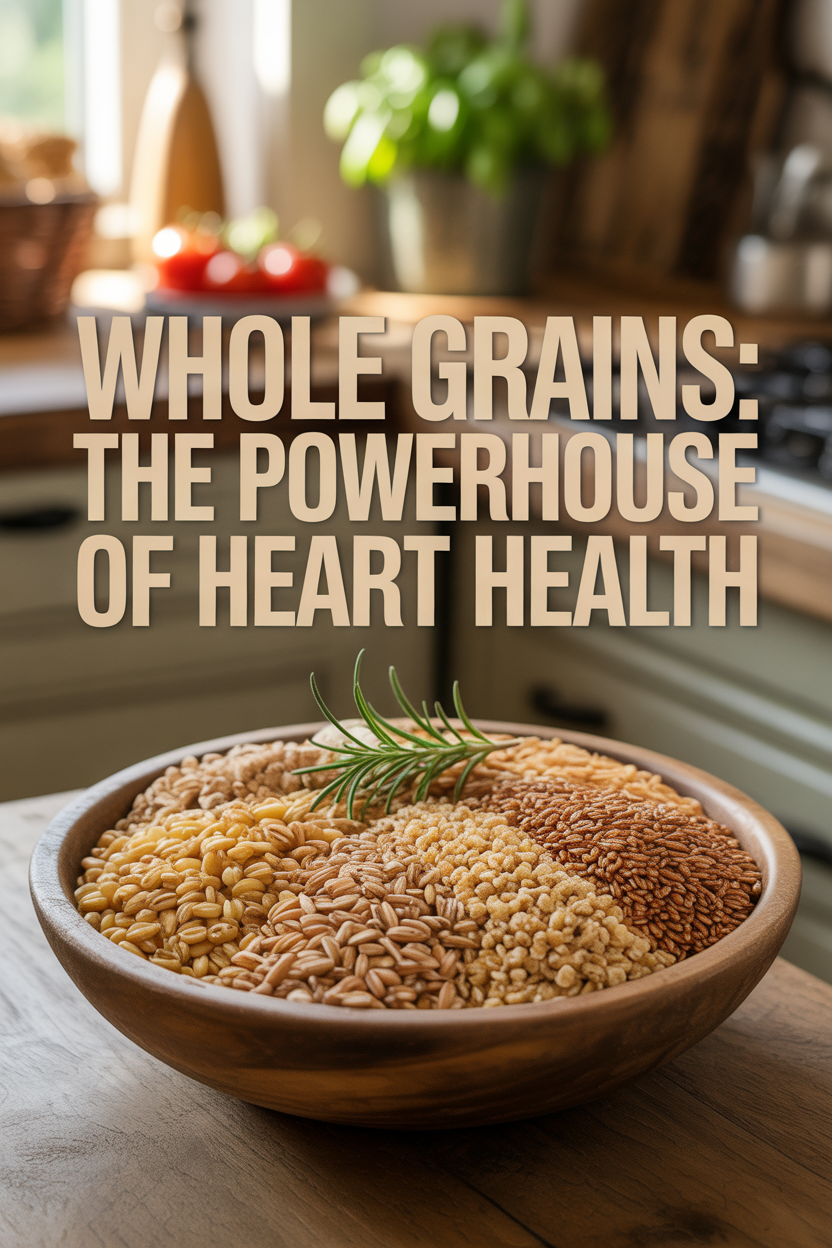
Whole grains are the unprocessed, nutrient-rich foundation of a truly heart-healthy diet. Unlike refined grains, they retain all their natural fiber, vitamins, and minerals, offering you their full spectrum of benefits.
These complex carbohydrates provide sustained energy without spiking your blood sugar. This helps you feel balanced and energized throughout your day.
Their high fiber content is critical for managing cholesterol and promoting healthy digestion. Grains like oats, barley, and quinoa are especially beneficial for heart wellness.
Expand your culinary horizons beyond oats and brown rice. Explore nutty-tasting farro, hearty barley, or versatile quinoa as delicious bases for salads, soups, and side dishes.
Making the switch is easy. Start by replacing white bread with a hearty whole-grain loaf or swapping white pasta for a whole-wheat version. Your heart will thank you.
Spot the Subtle Saboteurs: Sodium and Added Sugars

Nourishing your heart is as much about what you reduce as what you add. Gently minimizing sodium and added sugars in your diet can have an immense, positive impact on your cardiovascular health.
Excess sodium can cause the body to retain water, which may lead to higher blood pressure. A simple way to reduce intake is by flavoring your food with vibrant herbs, spices, and citrus instead of extra salt.
Always check labels on packaged foods like soups and sauces, as sodium can be surprisingly high. Choosing low-sodium versions gives you control over your intake.
Added sugars are another sneaky contributor to heart strain, promoting inflammation and unwanted weight gain. They often hide in sweetened beverages, desserts, and processed snacks.
Find joy in simple swaps that feel abundant, not restrictive. Try sparkling water with a splash of fruit juice instead of soda, or enjoy the natural sweetness of fresh berries for dessert.
How Do You Create a Heart-Healthy Weekly Menu?

Planning your meals in advance makes heart-healthy eating both enjoyable and sustainable. A thoughtful weekly menu removes daily decision fatigue and ensures you consistently nourish your body.
This simple practice brings peace of mind, freeing you from the stress of last-minute unhealthy choices. It empowers you to take control of your wellness with confidence.
Start your plan by focusing on a variety of colorful vegetables and fruits, aiming to include a rainbow of heart-protective nutrients throughout your week.
Build balanced meals by scheduling fatty fish twice a week, plant-based proteins for at least three meals, and whole grains daily. Keep healthy snacks like nuts, seeds, and fresh fruit available to maintain stable energy.
Set aside just 20 minutes each weekend to outline your menu and create an organized shopping list. This small investment of time is a strategy that leading health clinics advise for lasting success.
Nourish Your Heart for a More Vibrant Life

Imagine filling your daily routine with vibrant, delicious foods that not only delight your senses but also deeply nurture your heart. This is the essence of attainable, pleasure-focused self-care.
By incorporating these colorful, nutrient-rich ingredients, you can experience a renewed sense of vitality. This approach complements a sophisticated lifestyle and a beautifully curated home.
Embracing heart healthy foods for women over 60 does not mean sacrificing flavor or beauty. On the contrary, these wholesome ingredients become the centerpiece of your culinary artistry, enhancing both your health and your home’s aesthetic.
Start today with one simple, beautiful change. Add a bowl of gorgeous berries to your breakfast table or incorporate a splash of golden olive oil into your dinner preparation.
These small acts honor your heart and your impeccable taste, reflecting the very best practices in lifelong nutritional wellness as recommended by experts like the American Heart Association.






